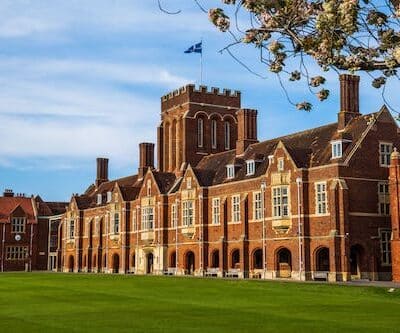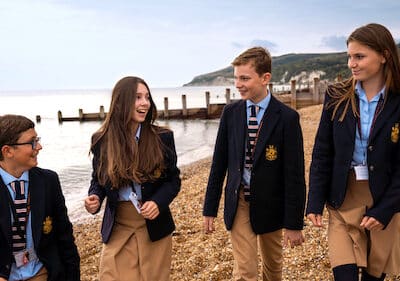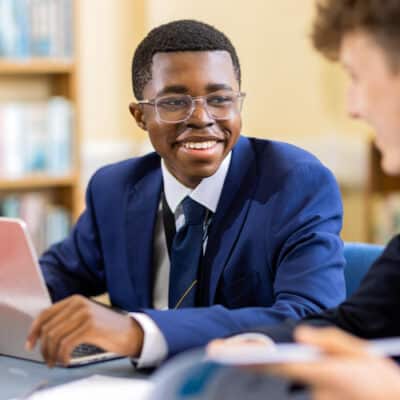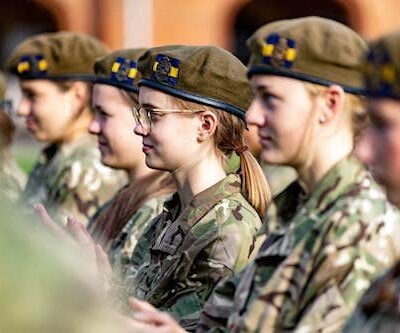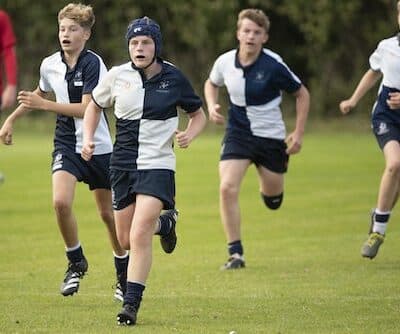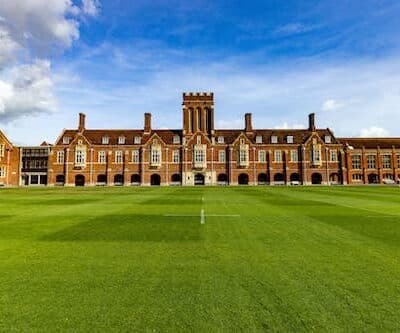Eastbourne College pupils help with marine conservation research
Lower Sixth pupils at Eastbourne College recently took part in filmed interviews to help the research efforts of the Marine Conservation Society (MCS). The MCS is the UK’s leading charity dedicated to protecting our seas, shores and wildlife.
Head of Ocean Recovery, Dr Peter Richardson and Agents for Change Coordinator, Alice Tebb from the MCS, set up shop on the balcony of the College pavilion for a morning of informal conversational interviews with four pupils, to gather information about how young people feel about living by the sea. Felix, Martha, Sam and Sasha were among more than 30 young interviewees recorded by the project across the Sussex coast.
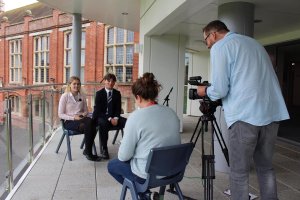 ‘Our project is all about the connection between people and the sea in Sussex – and particularly looks at the health and wellbeing benefits people get from time in blue spaces.’ Stated Sue Ranger, the MCS’s Conservation and Engagement Manager. ‘We at the Marine Conservation Society are particularly interested in how younger people from all walks of life, use it (or not as the case may be!). We want to better understand what the coast and sea means to them and what their future vision is for our ocean.’
‘Our project is all about the connection between people and the sea in Sussex – and particularly looks at the health and wellbeing benefits people get from time in blue spaces.’ Stated Sue Ranger, the MCS’s Conservation and Engagement Manager. ‘We at the Marine Conservation Society are particularly interested in how younger people from all walks of life, use it (or not as the case may be!). We want to better understand what the coast and sea means to them and what their future vision is for our ocean.’
Working with the Sussex Wildlife Trust and other partners, Alice, Peter and Sue (who is currently doing her PhD), are applying their tried and tested values-based approach (coined Community Voice Method) in a bid to secure secondary funding from the National Lottery Heritage Fund. Their exciting new project is called Sussex by the Sea. The project has ambitious aims to get as many people as possible to enjoy all the ocean benefits on their doorstep, and learn how they can get involved in the conservation and protection of our ocean.
In responding to the questions posed by the researchers, Felix, Martha, Sam and Sasha provided invaluable qualitative data which was recorded and later transcribed for ongoing analysis by the scientists. Filming the pupils also allows the MCS to create a series of short films that can be used at community events across Sussex later in the project to encourage a much wider audience to get involved, talk about what the coast and sea means to them, and what they would like to see happen in the future.
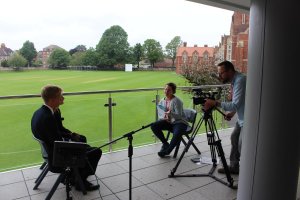 This kind of participatory film based method has been used to solve problems, develop management measures, improve communication and discover common ground in coastal communities across the UK. Eastbourne College, a school with a 150 year connection with the sea, was proud to be part of the research project which sees it extend its reach in matters concerned with what Exeter University scientists termed ‘Blue Health’.
This kind of participatory film based method has been used to solve problems, develop management measures, improve communication and discover common ground in coastal communities across the UK. Eastbourne College, a school with a 150 year connection with the sea, was proud to be part of the research project which sees it extend its reach in matters concerned with what Exeter University scientists termed ‘Blue Health’.
Felix, Martha, Sam and Sasha took the opportunity to talk about their concerns for the oceans and the care and respect which will be required of their generation to put right some of the wrongs. They mentioned the issue of plastics, overfishing, detailed their relationship to the sea and included some anecdotes about the health benefits of living by the sea, family holidays and the potential for cultural and social opportunities it may present.
For more information about the work of the Marine Conservation Society, visit their website at: https://www.mcsuk.org/
For a taste of how the Community Voice Method has worked in previous projects, please watch this short video: https://vimeo.com/150885111
